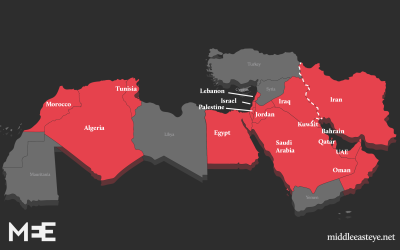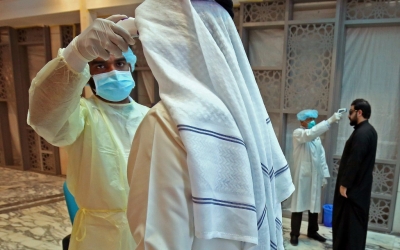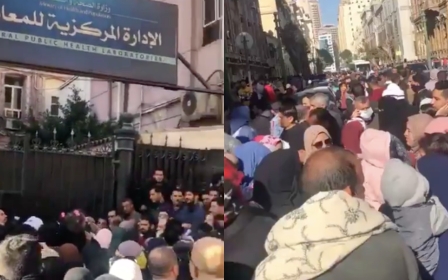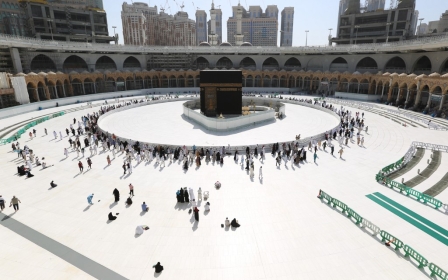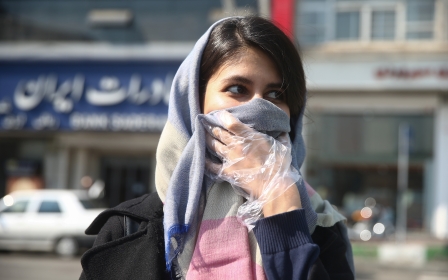Coronavirus: Aid groups move to block outbreak in Syria rebel pocket
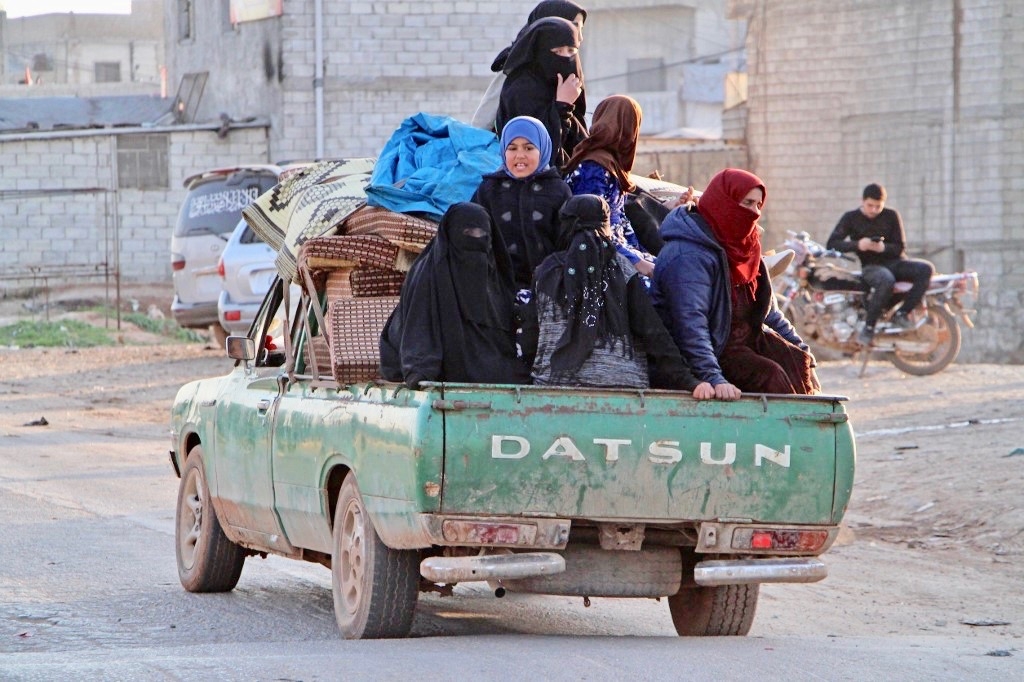
Aid agencies are moving to prevent a novel coronavirus outbreak in war-torn northwestern Syria, where devastated health infrastructure and massive displacement make containment an almost impossible task.
Syria has not yet confirmed any coronavirus cases, but its "fragile health systems may not have the capacity to detect and respond" to an epidemic, said World Health Organisation spokesman Hedinn Halldorsson.
The risk of an outbreak is especially high and most alarming in Syria's northwest, where three million people are trapped in a shrinking rebel bastion battered by months of deadly bombardment.
With close to one million people displaced since December by a Russian-backed Syrian government offensive on the Idlib region, overcrowded settlements are teeming with fresh arrivals.
Many are still sleeping rough in what has been bitter cold.
MEE reported last week that two senior US officials visited Idlib and pledged $108m in aid for Syrian civilians.
US representative to the UN Kelly Craft, along with US Special Envoy James Jeffrey, briefly visited Idlib and met Syrian NGO representatives and the White Helmets civil defence group.
The visit was a first by any US official. During the visit, Craft announced the aid package, which Washington said was earmarked for "the people of Syria in response to the ongoing crisis caused by Assad regime, Russian, and Iranian forces".
Still, medical facilities have been targeted during the latest bombing campaign, further reducing the capacity of a health system ravaged by nine years of conflict.
Unable to provide services from government-held territory inside Syria, the WHO provides cross-border assistance to rebel-held Idlib via Turkey, Halldorsson told AFP.
Health personnel are being trained and "laboratories in both Idlib and Ankara are being prepared and stocked to safely test and diagnose the virus", he added.
A Russian-Turkish ceasefire deal went into effect on Friday, bringing relative calm to Idlib for the first time in months.
But many fear the fighting will eventually resume, in a further challenge to efforts to prevent a Covid-19 outbreak.
Misty Buswell of the International Rescue Committee said the situation in Idlib was "especially ripe for a spread" of the virus.
"An outbreak would be devastating for thousands whose health status is already compromised due to lack of sufficient food, clean water and exposure to cold weather," she told AFP.
Buswell said the IRC was focusing on preventing the illness from arriving, but would work with "local health actors" to respond to an outbreak.
Mustafa al-Abdo, the deputy head of Idlib's opposition-run health department, appealed for the formation of an isolated medical centre that would be ready to receive cases.
He also called on aid agencies to equip health workers with testing kits, medical masks, gloves and other equipment for prevention.
Local doctors are also playing their part in preventing an outbreak.
Near the Turkish border on Sunday, Zaher Hanak, a Syrian doctor, delivered a health awareness lecture on the novel coronavirus to 20 attendees.
Speaking to AFP after the session, he said the lecture was necessary to combat misinformation on the virus.
Discussing prevention measures, he said local authorities "are currently looking for a place to quarantine" potential cases.
But he warned that some coronavirus detection tools were unavailable because of high costs.
Middle East Eye delivers independent and unrivalled coverage and analysis of the Middle East, North Africa and beyond. To learn more about republishing this content and the associated fees, please fill out this form. More about MEE can be found here.


